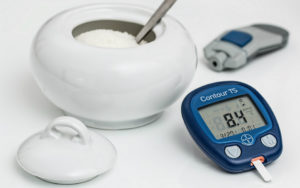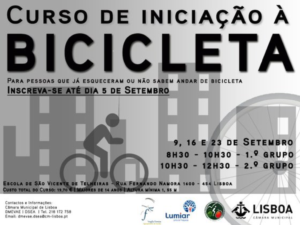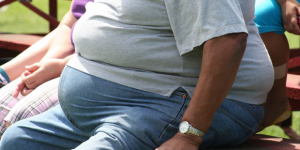‘If it were ever to rain soup, the poor would only have forks’ – Brazilian proverb
Poverty and disease go hand in hand, not only in so-called developing countries but also in more affluent societies.
‘The fact that 20% of the population has limited access to healthy food – due to financial constraints – has serious consequences’, says Helena Canhão, investigator at the Health Science Faculty of the New University of Lisbon.
‘A poor people’s diet of cheap and fast food leads to obesity and diabetes.’
 Obesity is Portugal’s biggest Public Health problem [zwaargewichten].
Obesity is Portugal’s biggest Public Health problem [zwaargewichten].
More than half of the population is too heavy, 75% of the elderly and nearly a third of all children.
Obesity is more common in the poor and rural parts of the country, in particular the Alentejo province.
People with primary school only are 3 times more often obese than higher educated people, who are not only better informed, but also earn more and can afford a healthy diet with fresh nutrients.
 ‘That social inequality has an impact on health is beyond doubt.
‘That social inequality has an impact on health is beyond doubt.
People who have access to a Mediterranean diet are socially more privileged’, says Pedro Graça, director of the National Program for the Promotion of Healthy Nutrition.
 The average Portuguese eats for two, meaning almost 4000 calories per person per day!
The average Portuguese eats for two, meaning almost 4000 calories per person per day!
Not only is this far too much, the quality of food is also poor. It contains three times the recommended amount of meat, fish and eggs and only half the amount of vegetables.
And although Portuguese cherish their daily bowl of soup, it is often too salty. Moreover, the intake of alcohol and soda is considerable. Nearly a quarter of all men and at least 10% of women drink too much and half the population consumes soft drinks on a daily basis.
 As a result of the obesity epidemic diabetes is very common and Portugal even has the highest prevalence of diabetes in Europe. One in every 7 citizens is affected and 25% of the people – who die in hospital – have diabetes. The risk to get the disease is four times higher in people, who haven’t completed primary school – a number twice as high in Portugal, than elsewhere in Europe.
As a result of the obesity epidemic diabetes is very common and Portugal even has the highest prevalence of diabetes in Europe. One in every 7 citizens is affected and 25% of the people – who die in hospital – have diabetes. The risk to get the disease is four times higher in people, who haven’t completed primary school – a number twice as high in Portugal, than elsewhere in Europe.
‘We are wasting our money on the wrong side’, says Luis Correia, head of the Diabetes Observatory. Treatment of diabetes now devours 12% of our national health budget. It would be much cheaper to prevent the disease instead.’
BOM FIM DE SEMANA (photos Observador/SAPO)

 Cycling is a good alternative to using the car. It not only reduces traffic congestion but also benefits the environment and health. Regular cycling ( 45 km a week) cuts the risk of death from any cause by 40% and the incidence of heart disease and cancer by 45%.
Cycling is a good alternative to using the car. It not only reduces traffic congestion but also benefits the environment and health. Regular cycling ( 45 km a week) cuts the risk of death from any cause by 40% and the incidence of heart disease and cancer by 45%. This number is to be extended to 1400 bikes – 950 electric ones to cope with the hilly parts –being installed in the flatter parts of Lisbon – the Plateau area, the touristic Baixa and along the waterfront of the Tagus river.
This number is to be extended to 1400 bikes – 950 electric ones to cope with the hilly parts –being installed in the flatter parts of Lisbon – the Plateau area, the touristic Baixa and along the waterfront of the Tagus river.
